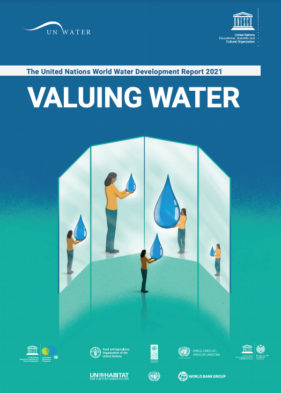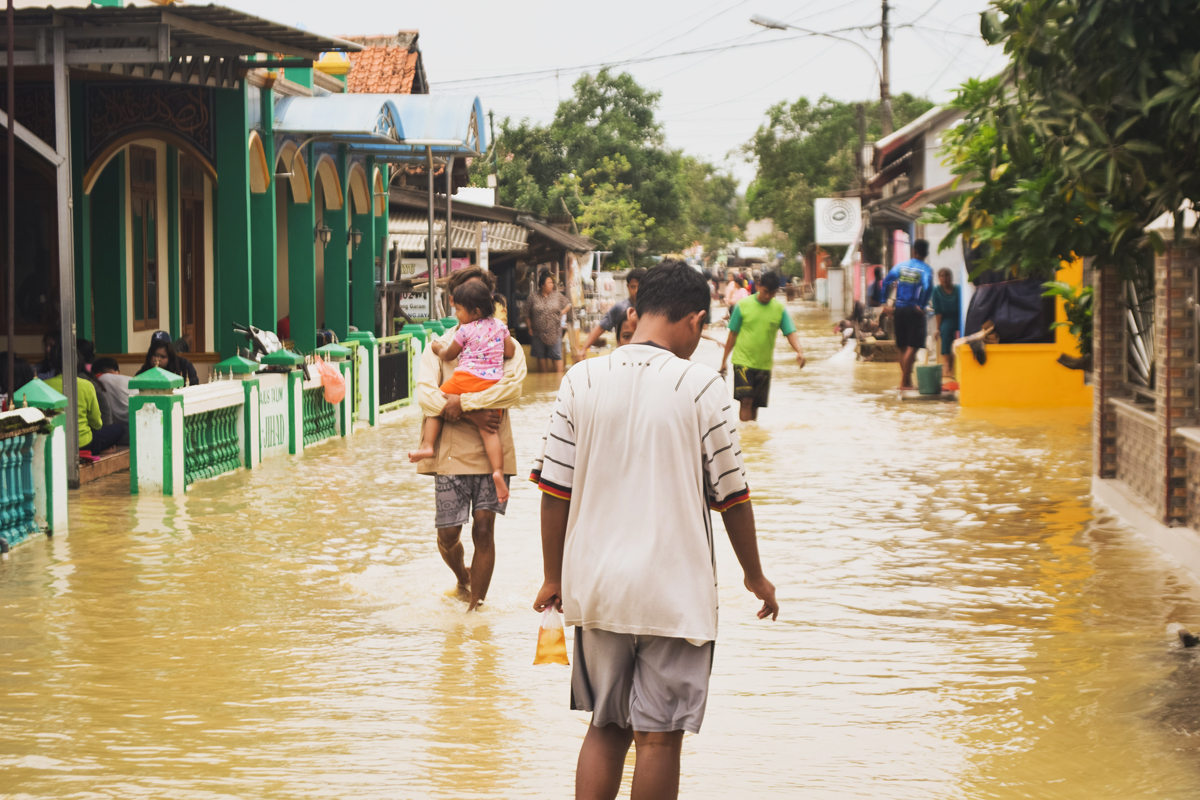Valuing water the key to achieving UN Sustainable Development Goals
‘Those who control how water is valued control how it is used.’
Valuing water is the title and theme of the UN World Water Development Report 2021. The report argues that too often, decisions do not reflect the full value of water. Further, recognising, measuring and expressing water’s worth, and incorporating it into decision making, are fundamental to managing water sustainably and equitably, and to achieving the UN Sustainable Development Goals.
The CRC for Water Sensitive Cities – in collaboration with the World Bank Group, the Development Research Center of the State Council (China), the Australian Water Partnership, and International Centre for Environmental Management (ICEM) – is working to address this gap by developing a framework for valuing nature-based solutions to urban flooding.
Nature-based solutions (Nbs) – defined by the International Union for Conservation of Nature as ‘actions to protect, sustainably manage, and restore natural or modified ecosystems, that address societal challenges effectively and adaptively, simultaneously providing human well-being and biodiversity benefits’ – are increasingly recognised as important tools for building resilience, developing sustainable adaptations, and improving disaster risk management.
Two projects, one in China and one in the Mekong Region initially looking at Thailand and Vietnam, are focusing on identifying, evaluating and realising the benefits of nature-based solutions for integrated urban flood management in these flood-prone regions.

Sponge cities: valuing nature-based solutions in integrated urban flood management in China
The World Bank – in collaboration with the Development Research Center of the State Council in China, and drawing on research and tools developed by the CRC for Water Sensitive Cities – has just launched a summary report about recognising and evaluating the comprehensive social, environmental and economic benefits of integrated urban flood management.
The summary report is based on a larger manual titled Sponge cities: valuing nature-based solutions in integrated urban flood management in China which is set within the context of China’s Sponge Cities. These cities promote the integration of nature-based solutions (Nbs) as part of a coherent and holistic approach to integrated water management in the urban context.
The manual outlines a 5-step process for determining the suite of options for managing urban flood:
- Define the urban system context.
- Undertake a flood risk assessment.
- Identify context-appropriate interventions.
- Value and choose interventions.
- Identify appropriate financing and funding mechanisms.
With 641 of China’s largest cities subject to regular flooding, innovative structural and non-structural solutions are needed to mitigate urban flooding risk. China aims to have 80 per cent of its urban areas become ‘sponge-like’ by 2030, in line with SDG 11.
Such approaches generate a range of benefits by increasing resilience, restoring and conserving natural capital, improving the liveability of urban spaces, and contributing to more sustainable outcomes. To achieve these outcomes, hybrid, city-wide urban infrastructure is needed with an optimal mix of blue, green, and grey corridors, as well as integrated Nbs in the built urban form at scale.
The summary report was launched during a webinar on 10 March, with insightful commentary and a Q&A panel. Speakers at the event included:
- Gu Shuzhong, Deputy Director General of the Institute for Resources and Environmental Policies, Development Research Center (DRC) of the State Council of China
- Ben Furmage, CEO of the CRC for Water Sensitive Cities
- Sun Xiang, Senior Engineer at Shenzhen Water Planning and Design Institute
- Wang Xiaowen, Director of the Research Center of China Investment Consulting Co. Ltd (CICOC)
- Jennifer Sara, Water Global Director, World Bank Group.

Valuing water through Nbs in the Mekong Region
Through the Australian Water Partnership (AWP), the Australian Government with the World Bank has been supporting a similar initiative to identify, evaluate and realise the benefits associated with Nbs for integrated urban flood management in the Mekong region.
Increasing usage of NbS in cities in the Mekong region relies on building a strong business case, which requires quantifying the associated benefits and comparing them with conventional approaches.
As such, AWP partners – the CRCWSC and the International Centre for Environmental Management (ICEM) – are conducting detailed case studies in two countries: Thailand and Vietnam.
Thailand is one of the world’s top 15 countries with populations exposed to river floods, and water-related natural disasters affect more than 70 per cent of Vietnam’s population, making it one of the most hazard-prone countries in the world.
CRCWSC and the ICEM have been working closely with national government agencies to demonstrate the integrated urban flood management process and support the application of the CRCWSC’s Investment Framework For Economics of Water Sensitive Cities to four case study sites:
- Tam Bình Park, Thủ Đức district, Ho Chi Minh City, Vietnam: A multifunctional urban swamp forest for flood mitigation with stormwater managed aquifer recharge and a subsurface wetland to treat wastewater before conveyance to the drainage system
- Phu Quoc island, Duong Dong catchment, Vietnam: A constructed wetland park to provide water regulation and stormwater harvesting, as well as serving as an ecotourism attraction
- Sukhumvit District, Bangkok, Thailand: Precinct scale NbS to enhance Benjakitti Park’s redevelopment into a multifunctional wetland as well as small scale NbS (such as stormwater planter boxes and green roofs/walls) to the high density area north of the park
- Sukhumvit Road, Rayong, Bangkok, Thailand: Urban canyons to support urban cooling.
Commenting on this significant project, our CEO Ben Furmage said, ‘The level of engagement from Thai and Vietnamese colleagues, AWP and the World Bank has been invaluable in bringing together local knowledge and international experience as we build business cases for hybrid NbS and conventional solutions that respond to local priorities and deliver lasting value’.
For more information, see the project summary: Valuing the benefits of nature-based solutions to integrated urban flood management in Thailand and Vietnam.